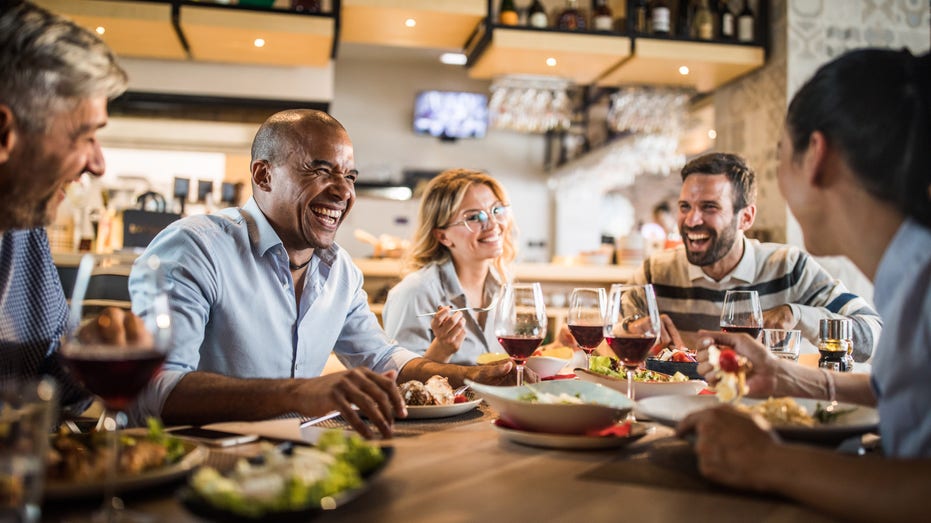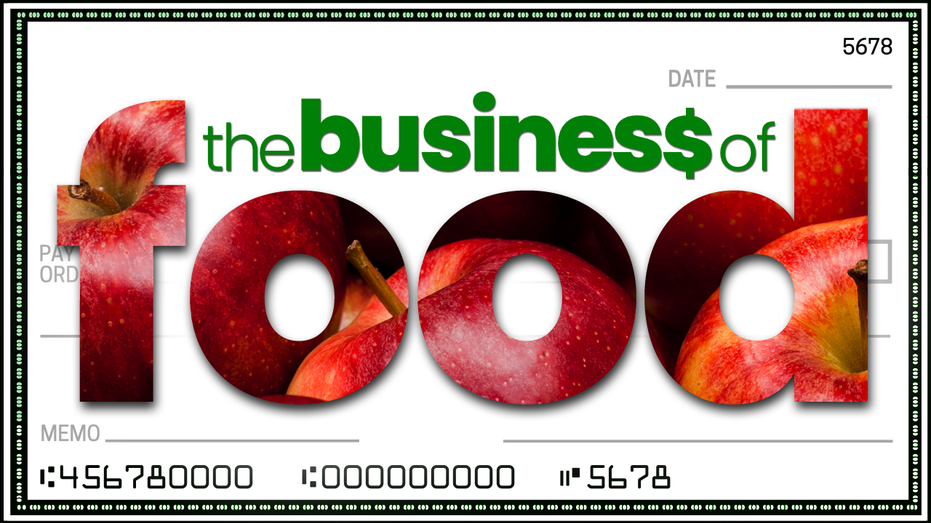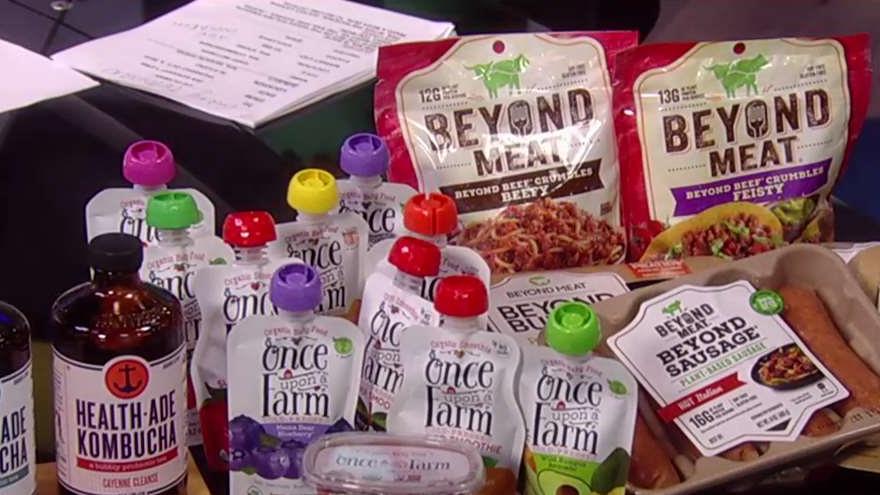Food and drink innovations for 2020
Edible coffee cups, fancy baby food and CBD energy drinks on the rise
Americans will eat less fast food in 2020 with demand for accessibly priced, better-for-you options on the rise.
Nielsen surveyed 19,988 Americans for its “How America Will Eat” 2020 food trend forecast report and found that 49 percent made healthier eating choices in 2019. But consumers are not eating as well as they would like to. While almost all of U.S. households surveyed (99 percent) purchased a low-fat food or beverage item in the past year, they're only buying them twice a month, leaving white space in the category for manufacturers to put out more affordable options.
There's clearly a demand for fresh versus processed and frozen. Food companies saw major growth from fresh foods ($4.6 billion), organic options ($925 million) and ingredients that support plant-based diets ($982 million), according to Nilsen data.

Forty-nine percent of Americans made healthier eating choices in 2019, according to Nielsen's "How America Will Eat" 2020 food trend report.
“Americans have bright intentions for the future, and this presents manufacturers and retailers with a golden opportunity to capitalize on this optimism by removing the barriers that separate what people want to eat and drink with what they actually consume,” Nielsen analysts said in the report.
And with that, food companies will be more inventive in food packaging and experience-based dining moments in addition to sophisticated baby food and sugarless sweets. Here are the top trending food, diet and drink categories to look out for in 2020:
Edible and sustainable food packaging
As sustainability continues to drive consumer purchasing decisions, more food brands are rethinking the way they package products with the least amount of waste possible and zero plastic to reduce pollution, Jenny Frazier, senior vice president of Nielsen Connect, Innovation, told FOX Business. Think edible water bottles and coffee cups and dissolvable packaging made from plant-based, food-grade materials.
Some companies have already begun experimenting with waste-free snack options. A New Zealand-based company called Twiice rolled out coffee cups made out of a biscotti cookie. A two-pack, for $10, is made with wheat flour, sugar, egg and vanilla, according to its website. And South African startup Munch Bowls makes biodegradable bowls from wheat. The bowls can hold salads, fruit, cereal and soup for up to five hours and have a 15-month shelf life, CNN reported. On the dessert front, French pastry chef Dominique Ansel, who invented the croissant-doughnut hybrid, got in front of the edible food trend in 2014 when he launched the cookie shot, a chocolate chip cookie molded into the shape of a shot glass that could hold a shot of milk.
And pasta straw alternatives to plastic and metal have also been on the rise, with brands like Malibu-based company The Amazing Pasta Straw and London-based Stroodles, which utilize bucatini uncooked noodles.
Fancy baby food
While some have argued that Fisher-Price's charcuterie-board playset might be too fancy for kids, adult food made for the pint-sized crowd will be on the rise in 2020, according to Frazier. Startups like Yumble offer more mature and inventive food takes on the kids' menu, with meals like bolognese ravioli and vegetarian bean burritos along with "better" chicken nuggets made with organic and gluten-free chicken breast.
And Silicon Valley is invested in the trend. Another baby food delivery startup Yumi, which offers a variety of plant-based meals for kids, like beet puffs, sweet potato latke and carrot ginger porridge, raised $8 million from Allbrids, Uber, the CEO of the coffee company Blue Bottle, Warby Parker and Sweetgreen.
Value-added beverages
Food isn’t the only way Americans are fueling up. Five of the top 10 trending consumable and snack-oriented foods are drinkable. Oat milk, which has more fiber than other dairy-alternative milk on the market with 2 grams per cup and is said to help lower cholesterol, was ranked the No. 1 trending category of 2019, with $40 million in sales and 10 million units sold, according to the Nielsen report.
And drinks with marijuana and CBD (cannabidiol), made from the non-intoxicating compound found in hemp, said to alleviate anxiety, inflammation and chronic pain, saw 49 percent growth in sales compared to 2018, according to the Nielsen report. Brands like Recess, a sparkling CBD beverage, launched in January this year with adaptogens and hemp extract said to reduce stress and increase energy.
The energy drink category also saw growth of $1,124 million in sales, with the rise of natural energy drinks like MatchaBar Hustle, a sparkling sip with 120 milligrams of caffeine, comparable to the same amount of Red Bull. But unlike the latter, Matcha Bar Hustle doesn’t contain high levels of artificial sweeteners.
The trend of adding beauty supplements to drinks is also on the rise. Google searches for collagen, said to strengthen nails and promote healthy hair, reached a record high this year with a 61 percent increase in beauty supplement sales.
Brain food
Mental health and wellness is driving consumers to buy foods that boost brain health with ingredients proven to manage stress and reduce anxiety and depression while improving sleep. Sales of tuna were up 3 percent this year with $1.55 billion in sales; blueberries saw 5 percent growth with $1.36 billion in sales and shrimp saw 4 percent growth with $1.24 billion in sales, according to the Nielsen report. Others topping the category include fresh beef, up 6 percent with $919 million in sales; raspberries up 4 percent with $823 million; and non-dairy yogurt up 31 percent at $193 million.
“Consumer awareness and care for mental wellness have certainly improved," the Nielsen report said. "Therefore, companies need to prioritize mental health just as much as they do physical health in encouraging dietary changes in America.”
OPENTABLE NAMES 100 BEST RESTAURANTS IN AMERICA FOR 2019
No sugar
Americans are forecast to consume less sugar in their diets in the new year. This year, 80.5 percent of U.S. households surveyed said they bought sugar-free items in the last year, according to Nielsen data.
Consumers have been looking for alternatives to sugar all year. The search for "no carbs and no sugar" ranked No. 8 on Google's most-searched diets of 2019.

The Business of Food explores the rapidly changing $1.5 trillion food industry every Tuesday on FOX Business.




















